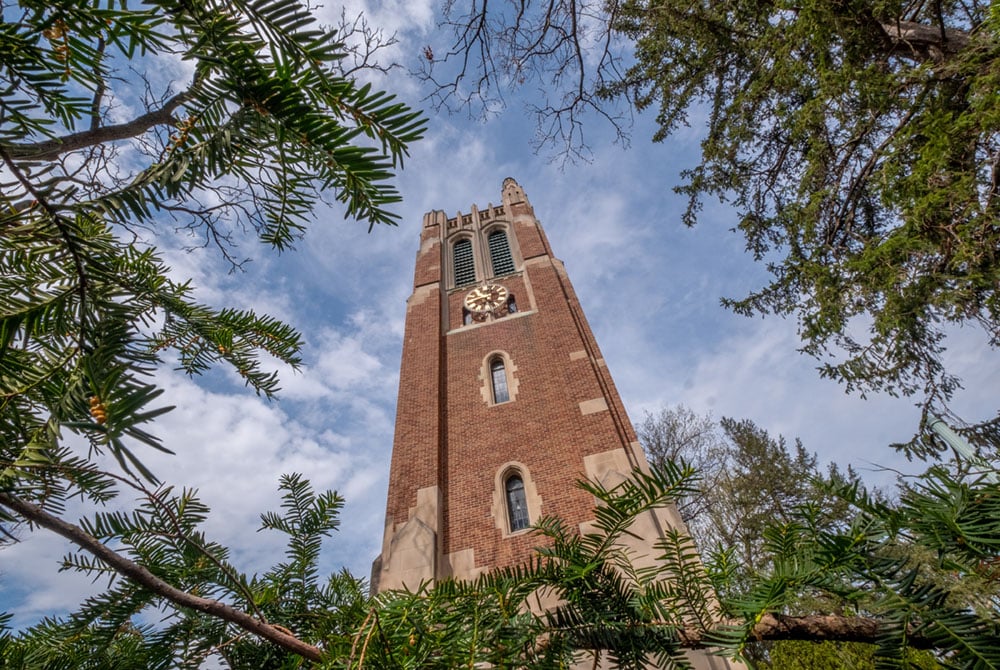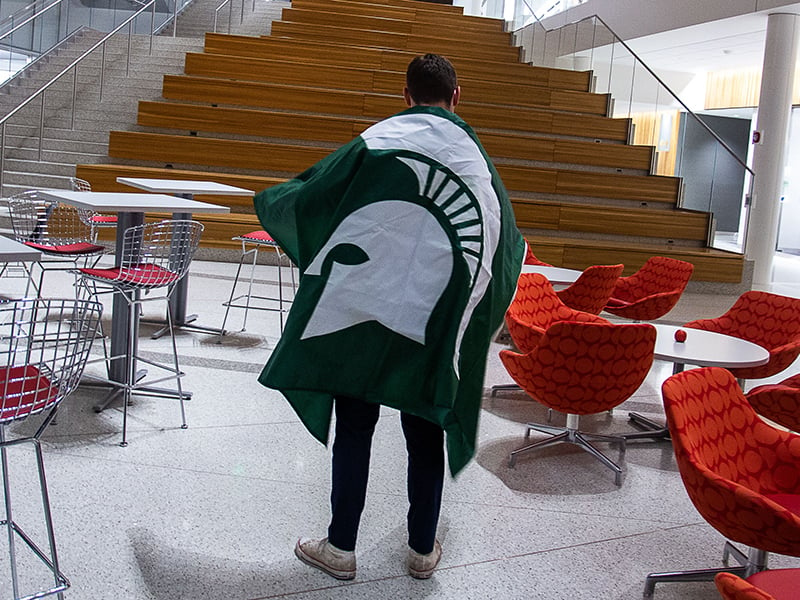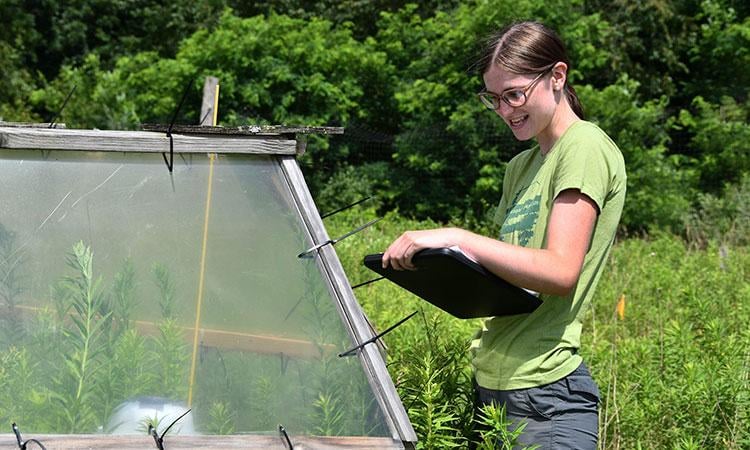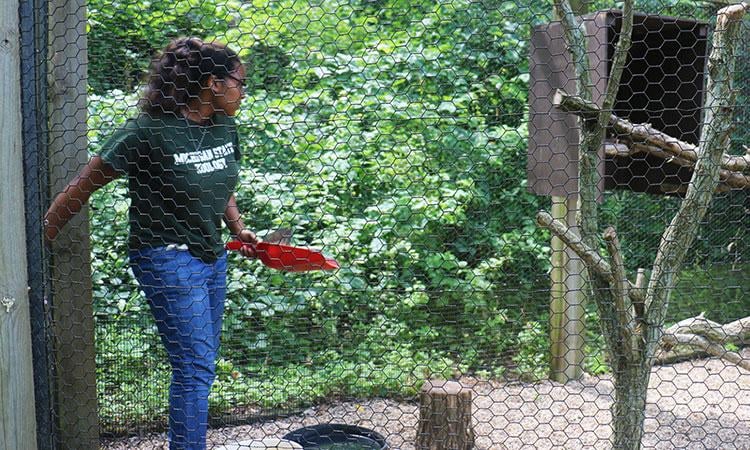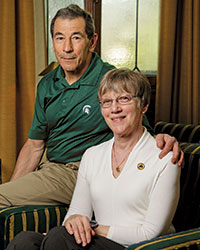Kellogg Biological Station welcomes a new director and new ways to impact young researchers
Located an hour southwest of MSU’s East Lansing campus, the W.K. Kellogg Biological Station occupies 3,800 acres of land in a quiet rural area between Kalamazoo and Battle Creek. It is home to both aquatic and terrestrial habitats, forests, old fields, streams, wetlands, lakes, agricultural lands…and one of North America’s premier inland field research stations.
Here, alongside such diverse natural ecosystems, an ecosystem of research and education also thrives.
For the undergraduate students whose interests lead them—sometimes from far and wide—to work, do research or attend classes at this incredible place, KBS can be a critical, formative experience in their pursuit of a career in field research.
Part of it is the tight-knit community. The research site is a nucleus around which faculty, graduate students and undergraduates live, work and even dine alongside one another, which certainly fosters collaboration but also gives a taste of what life in the field is really like.
The other part is the supportive, welcoming environment that is ripe for learning.
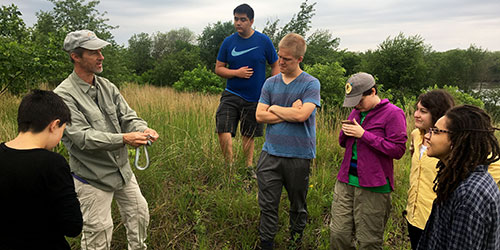
“What happens in this atmosphere is that you’ve got everybody pulling for you,” says Fredric Janzen, who officially joined Kellogg Biological Station as its director in June 2020. “Here, you gain the skill sets to understand two things: first, how to get through career challenges in a supportive work environment—where you get to the other side and say, ‘Yeah, I can do this.’ And second, you get exposure to diverse perspectives, not just from other students, but from mentors and staff who all have cutting-edge training.”
Right now, KBS offers just one option for paid, full-time undergraduate research: the National Science Foundation–funded Research Experiences for Undergraduates (REU) program.
Designated only for non-MSU students, REU is a 10-week, fully funded immersive experience that pairs students with a mentor who helps them design and implement an independent research project that culminates in a poster presentation at the end of the summer.
Aside from taking classes at KBS as part of their regular course load, MSU students have two options for immersive study there. The first is the Undergraduate Research Apprentice (URA) program, geared toward students with little to no previous research experience, who conduct research part time while also attending at least three credits of classroom training.
The second is the KBS Internship program, which also requires students to take a course and participate in professional development seminars while they complete the responsibilities of an internship in their chosen discipline, which could be anything from external communications to visitor experience to avian care at the Bird Sanctuary.
